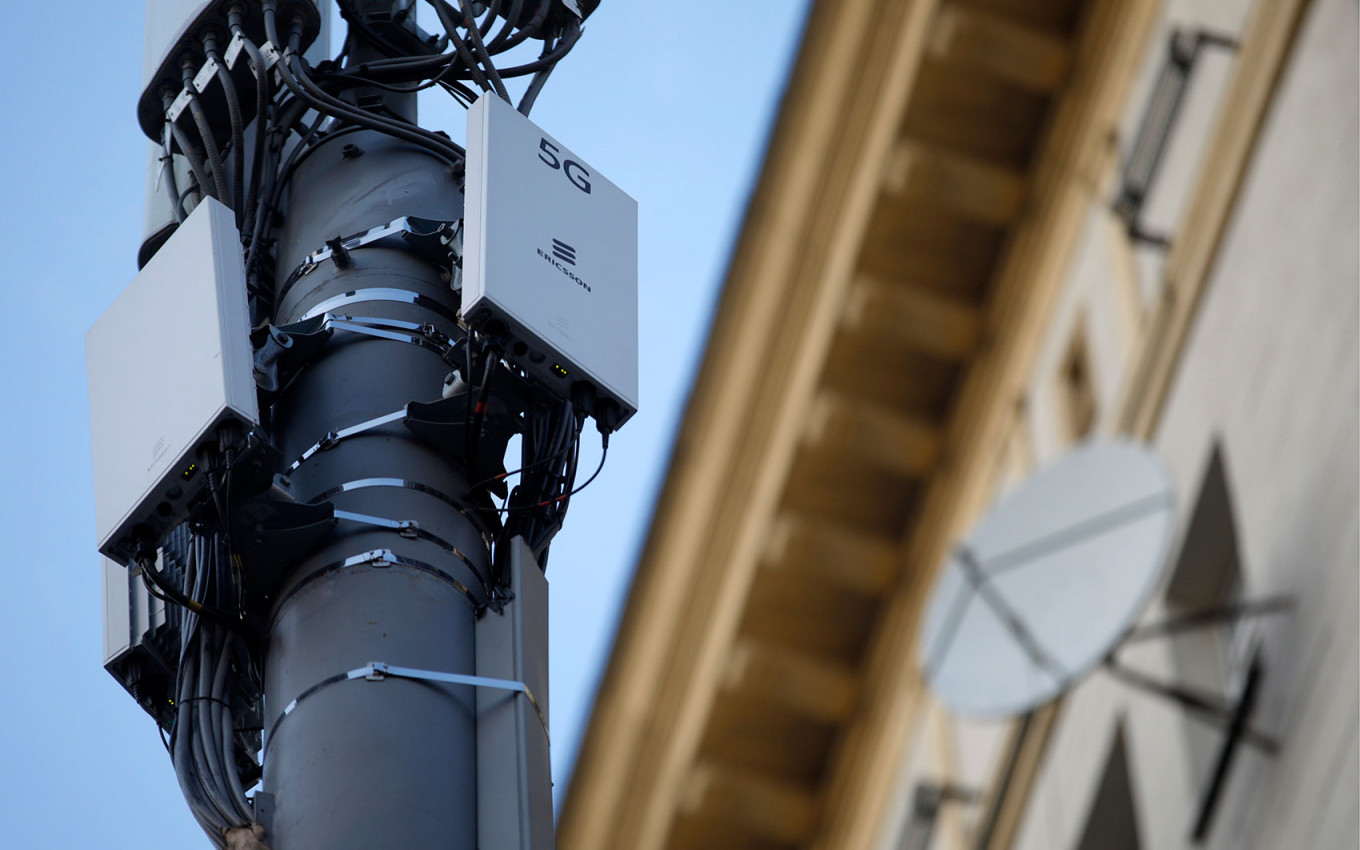The departure of top telecommunications firms from Russia after the invasion of Ukraine looks set to cause serious problems for the country’s mobile networks almost totally dependent on foreign companies for maintenance and upgrades, according to experts.
Russia relies on European telecoms giants Nokia and Ericsson, as well as Chinese vendors Huawei and ZTE, for most of its wireless network equipment.
But last week’s decision by Finland’s Nokia and Sweden’s Ericsson to pull out of the Russian market in protest of the invasion and amid the constraints of Western sanctions has left the supply and maintenance of Russia’s telecom systems in limbo. Huawei has also announced that they are suspending Russian operations, dealing a further blow to Russia’s ability to withstand the Western departures.
“If Russia is not able to maintain the systems themselves then all of these can fail. It could all come to quite a sudden and unexpected shock,” Roger Entner, the head of Recon Analytics in Massachusetts, told The Moscow Times.
Western sanctions imposed by the U.S. and the European Union threaten maintenance and upgrading in the long-run because the four major vendors are banned from providing new equipment to Russia. Nokia and Ericsson alone provide as much as half of Russia’s wireless network equipment, mostly in western Russia’s major cities and the capital, Moscow.

“Vendors are still required to service the old [equipment], but given the sanctions are unable to charge any [domestic] operators,” said Hosuk Lee-Makiyam, a telecoms expert at European Center for International Political Economy. “So right now they’re doing it for free, which is great in the short term, but in the long term is not a sustainable solution.”
A Nokia representative told The Moscow Times that they are working on licenses allowing them to continue servicing telecoms equipment across Russia on “humanitarian” grounds.
“Western governments have expressed concerns about the risk of critical telecommunication network infrastructure in Russia failing. They have also emphasized the importance of ensuring the continued flow of information and access to the internet which provides outside perspectives to the Russian people,” the spokesperson said.
With foreign firms unable to carry out upgrades, Russia faces the risk of being stuck with outdated equipment.
It appears unlikely that Ericsson, Huawei and Russian domestic operator MTS will be able to implement their plan to start rolling out 5G — the ultra-fast mobile internet that will underpin a raft of future technologies — across Russia by the end of this year, according to Lee-Makiyama.
Nokia’s joint venture with Yadro, a Russian data storage developer, to build 4G and 5G telecoms base stations in Russia has reportedly been scrapped.
“Russia will be frozen in 2022, while the rest of the world will move forward. It could turn into a failing technology museum,” Entner said.

Plans to extend existing internet coverage also look to be on ice, with expansion almost impossible without Huawei, Nokia and Ericsson, according to Lee-Makiyama.
Russia’s diplomatic isolation as a result of the attack on Ukraine means that there is little chance of a recovery for the telecoms market.
Helsinki and Stockholm are now weighing whether to apply for NATO membership due to Russia’s invasion, risking a new rift between the two Nordic countries and Moscow. Without a rapprochement, a return to the Russian market for Nokia and Ericsson seems a distant prospect.
Observers have said that Russia’s war in Ukraine and hostility with the West would give Chinese companies looking to do business in Russia a major boost — but the situation is not as straightforward in telecommunications.
Despite Huawei recording a 300% increase in handset sales in the first two weeks of March, existing U.S. sanctions on the Chinese company and fears of a Western backlash has led to the Chinese company suspending its operations in Russia and furloughing staff.

U.S. sanctions imposed on Huawei in 2019 ban the telecommunications company from exporting products that use U.S. technology to Russia.
Although Russia successfully replaced Western telecoms equipment with Huawei systems on the annexed Crimean peninsula after 2014, a nationwide replacement of all Ericsson and Nokia equipment is likely to take years and be very expensive.
“Nokia and Ericsson have been building for 30 years in Russia,” Entner said. “There’s so many towers, so much equipment, replacing this would cost tens of billions of dollars.”
And even if Huawei is able to navigate U.S. sanctions and willing to replace all of Russia’s Western-suppled equipment, it would need a partner, said Lee-Makiyama.
Partially state-owned Chinese company ZTE is one option. While ZTE is not subject to any U.S. sanctions, it reportedly performs much worse than any of the other major players.
But there are few other companies to which Russia can turn.
“The Japanese are out of the question, the Koreans are out of the question, the Europeans cannot supply. There are not many places Russia can go,” Lee-Makiyama said.
A Message from The Moscow Times:
Dear readers,
We are facing unprecedented challenges. Russia's Prosecutor General's Office has designated The Moscow Times as an "undesirable" organization, criminalizing our work and putting our staff at risk of prosecution. This follows our earlier unjust labeling as a "foreign agent."
These actions are direct attempts to silence independent journalism in Russia. The authorities claim our work "discredits the decisions of the Russian leadership." We see things differently: we strive to provide accurate, unbiased reporting on Russia.
We, the journalists of The Moscow Times, refuse to be silenced. But to continue our work, we need your help.
Your support, no matter how small, makes a world of difference. If you can, please support us monthly starting from just $2. It's quick to set up, and every contribution makes a significant impact.
By supporting The Moscow Times, you're defending open, independent journalism in the face of repression. Thank you for standing with us.
Remind me later.







